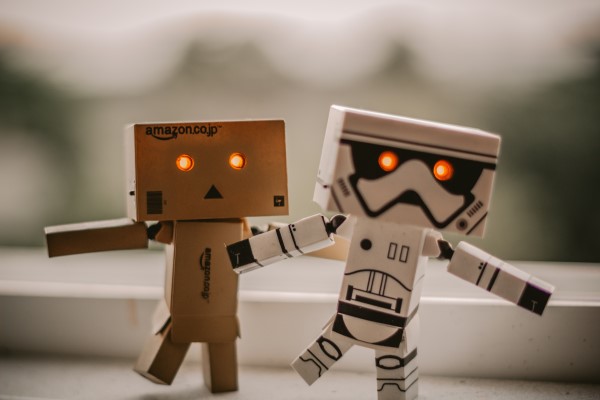Almost daily, certainly weekly, I seem to receive emails, promotions, articles etc from companies who seem all too keen to demonstrate why we need Artificial Intelligence and how it is going to transform the workplace. I then read these articles expecting some kind of epiphany – a sudden seeing of the light when I finally realise “that’s what it is all about”. And yet that doesn’t happen.
Instead, I find myself reading about technology that can help us hire ‘better’ people. About how algorithms can predict the future behaviour of candidates. How face-recognition technology is going to remove the first stage interview as you can detect traits in the character through a technical programme running from a camera feed. The list goes on…

Losing track of what we are trying to achieve and finding the best way to get there
Am I alone in thinking this is mostly nonsense? Such is the desperation of technology companies to demonstrate that they are not going to be left behind, they are re-packaging old ideas and presenting them in new ‘A.I.’ boxes for us to marvel at.
Are we losing track of what we are trying to achieve and how best to get there? Don’t get me wrong, I firmly believe there is an ever-increasing place for ‘smart’ technology. But this is not Artificial Intelligence. Smart technology is using technology to enhance your processes and to remove unnecessary time on administrative tasks, to help identify usage/spending etc. This is not about robots taking over the workplace.
Artificial Intelligence overlooking the power of the human brain
And there is my real problem. The hype about A.I. is often over-looking the power of the human brain. Our brains detect thousands of signals with just a split-second glance. It has built-in ‘algorithms’ that help us detect whether we sense something untoward with how something was said, or what the real meaning was behind a sentence – all based on a subtle intonation, or change of voice tone, or eye contact.
In addition, and perhaps most disappointing of all, is the tendency to forget that recruitment is ultimately a people business. It is about people looking to hire people – often to work alongside other people. Hiring of talent these days is all about engagement. Do we all think that true A.I. offers a chance to build a close rapport with your talent marketplace? Definitions of A.I. refer to limitations around common sense, reasoning and problem-solving. All of these factors are key qualities that any decent recruiter has to exercise in the course of their day to day work. In that sense, should we not be talking about Human Intelligence and instead of Artificial Intelligence?
This may seem glib at first, or even just slightly Luddite, but please don’t dismiss the thought just yet. Within Jobtrain we already have ‘Smart Match‘. It allows recruiters to load an advert and automatically match candidates on their own database against the requirements and, if necessary, match LinkedIn public profiles in order to identify suitable people to talk to. In my world that is not A.I. – that is smart technology. But Pablo Picasso once said, "computers are useless, they can only give you answers". In other words, it can present you with what it thinks are the best options (answers) but it takes human intelligence to apply common-sense, judgement and reasoning to present the best solution.
So where does this leave you when pondering the world of fast-moving recruitment technology?
If you’re wondering if you should utilise recruitment technology within your own organisation – well, you absolutely should embrace it! The benefits to be gained are enormous (in terms of reduced administration time; in reducing advertising costs; in reducing agency fees; in reducing time to hire etc). However, please don’t think it will replace the people component in the process. People still buy people and the need to engage, inform and build trust throughout the recruitment process is how you develop a successful workforce. And you can’t do that with A.I.